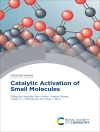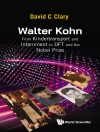The editors of this volume have compiled an important book that is a useful vehicle for important computational research – in the development of theoretical methodologies and their practical applications. Themes include new methodologies, state-of-the-art computational algorithms and hardware as well as new applications. This volume, Practical Aspects of Computational Chemistry IV, is part of a continuous effort by the editors to document recent progress made by eminent researchers. Most of these chapters have been collected from invited speakers from the annual international meeting: “Current Trends in Computational Chemistry” organized by Jerzy Leszczynski, one of the editors of the current volume. This conference series has become an exciting platform for eminent Theoretical/Computational Chemists to discuss their recent findings and is regularly honored by the presence of Nobel laureates. Certainly, it is not possible to cover all topics related to the Computational Chemistry in asingle volume but we hope that the recent contributions in the latest volume of this collection adequately highlight this important scientific area.
Innehållsförteckning
Relativistic Effects and Quantum Electrodynamics in Chemistry.- How Can One Locate the Global Energy Minimum for Hydrogen-bonded Clusters?.- Optical Parameters of p-Conjugated Oligomer Chains from the Semiempirical Local Coupled-Cluster Theory.- A Critical Look at Methods for Calculating Charge Transfer Couplings Fast and Accurately.- Methods for Computing ro-Vibrational Energy Levels.- Effectively Unpaired Electrons for Singlet States: from Diatomics to Graphene Nanoclusters.-Assembly of Carbon-based Nanodevices.- Computational Mechanochemistry.- Hydrogen Bond and Other Lewis Acid – Lewis Base Interactions – Mechanisms of Formation.- Iodine Contained Drugs: Complexes of Molecular Iodine and Tri-iodide with Bioorganic Ligands and Lithium Halogenides in Aqueous Solutions.- Detailed Atomistic Modeling of Si(110) Passivation by Atomic Layer Deposition of Al2O3.- Development of the Latest Tools for Building up “Nano-QSAR”: Quantitative Features – Property / Activity Relationships (QFPRs/QFARs).
Om författaren
Prof. J Leszczynski – Series Editor of COCH, Prof. of Chem at Jackson State University
Dr. Manoj Shukla, US Army Engineer, R&D Centre












